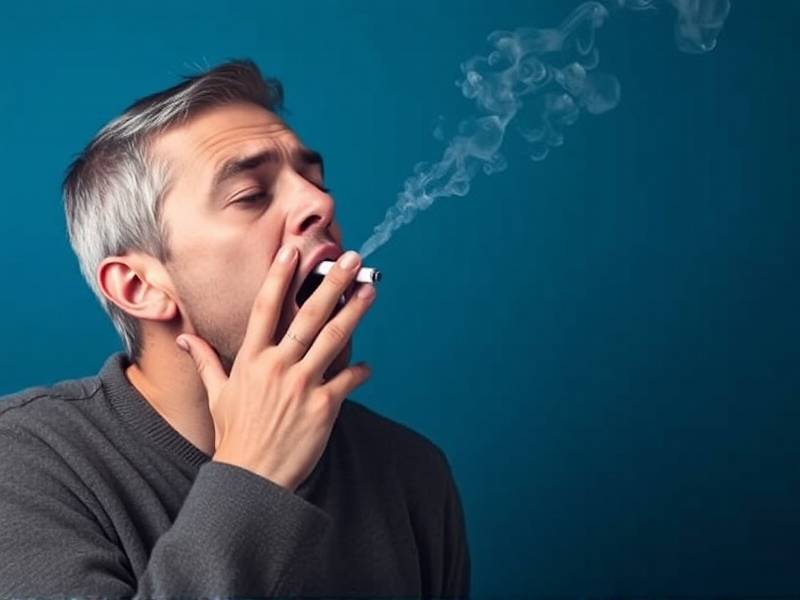Does Wheezing Go Away After Quitting Smoking?
The Silent Symptom: Does Wheezing Disappear After Quitting Smoking?

Introduction: Wheezing, that persistent whistling sound during breathing, can be a common companion for smokers. But what happens when you kick the habit? Does wheezing simply vanish after quitting smoking? In this article, we'll delve into the relationship between smoking and wheezing, and explore whether it's possible for the symptom to disappear post-cessation.
Understanding Wheezing: Wheezing occurs when the airways become inflamed and narrowed, causing a high-pitched sound as air moves through them. It's often associated with conditions like asthma or chronic obstructive pulmonary disease (COPD), both of which can be exacerbated by smoking.

The Link Between Smoking and Wheezing: Smoking is a well-known trigger for wheezing. The harmful chemicals in cigarettes cause inflammation and damage to the lungs, leading to narrowed airways and increased risk of developing respiratory conditions like asthma or COPD. As a result, many smokers experience wheezing as a regular occurrence.
The Promise of Quitting Smoking: When you quit smoking, your body begins to heal from the damage caused by tobacco smoke. This healing process can lead to several positive changes in your respiratory health, including a decrease in wheezing episodes.
How Long Does It Take for Wheezing to Go Away? The timeline for wheezing disappearance after quitting smoking varies from person to person. Some individuals may notice an improvement within weeks, while others may require several months or even years for their symptoms to completely resolve.
Factors Affecting Wheezing Disappearance: Several factors can influence how quickly wheezing subsides after quitting smoking:
- Severity of the underlying condition: Individuals with more severe asthma or COPD may take longer to experience relief from wheezing.
- Duration of smoking: Those who smoked for longer periods may have more extensive lung damage and take longer to recover.
- Environmental factors: Exposure to allergens or irritants can exacerbate wheezing symptoms.
- Commitment to quitting: Staying smoke-free is crucial for allowing your lungs to heal and reducing wheezing episodes.
Tips for Reducing Wheezing After Quitting Smoking: Here are some tips that may help alleviate wheezing after quitting smoking:
- Consult with your healthcare provider: They can provide personalized advice and treatment options based on your specific condition.
- Practice deep breathing exercises: These exercises help improve lung function and reduce inflammation.
- Avoid allergens and irritants: Keep your living environment clean and free from triggers like dust mites or pet dander.
- Stay hydrated: Drinking plenty of water helps keep your airways moist and reduces inflammation.
- Consider pulmonary rehabilitation: These programs offer exercise, education, and support tailored to individuals with respiratory conditions.
Conclusion: Quitting smoking is an important step towards improving respiratory health and potentially reducing wheezing symptoms over time. While the timeline varies among individuals, most people will see an improvement in their symptoms as their lungs heal from years of exposure to tobacco smoke. Stay committed to your smoke-free lifestyle, follow these tips, and work closely with your healthcare provider for the best results in managing your respiratory health.
